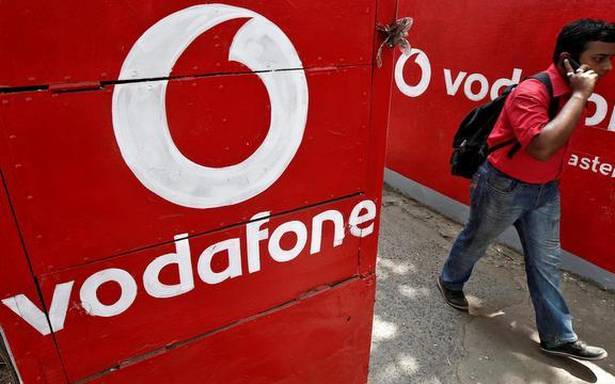
This article is written by Sai Manoj, pursuing Certificate Course in Arbitration: Strategy, Procedure and Drafting from LawSikho.
Table of Contents
Introduction
The Singapore seat of Permanent Court of Arbitration of The Hague has passed an award in favour of the Vodafone Group against the retrospective tax demand of Rs 22,100 crore as capital gains and withholding tax by the Indian government. The Indian government has challenged the award passed in favour of Vodafone by the Singapore seat of Permanent Court of Arbitration of The Hague. The Vodafone arbitration case also famously known as the Vodafone retrospective tax case is a very famous case in India as well as for the international businesses willing to invest in India under the foreign direct investment route. This is a case of high political importance because the determination of this case will impact many pending international arbitration matters against India which might adversely affect the finances and status of the Indian government in the world as it has to pay huge sums of money to many companies against whom the retrospective tax is imposed.
Background of the case
The origin of this case started in 2007 when Vodafone had acquired a 67% stake in Hutchison for 11 billion dollars which also included its telecommunication business and other assets in India. In September 2007 the government of India raised a demand of Rs. 7,990 crores against Vodafone as capital gains and withholding taxes stating that the company should have deducted the at source (TDS) before making a payment to Hutchison.
Vodafone group challenged this tax demand in the Bombay High Court and the court passed a judgement in favour of the Income Tax Department. Subsequently, the Bombay High Court judgement was challenged by the Vodafone Group in the Supreme Court and in 2012 the Supreme Court passed a judgement overruling the Bombay High Court judgement and in favour of the Vodafone group.
In the same year, the UPA government passed an amendment to the Finance Act which circumvented the Supreme Court’s ruling and gave the power to the income tax department to levy the taxes retrospectively. This amendment means the onus to pay taxes fell back on the Vodafone group.
After the amendment was passed there was a huge backlash and criticism by the global investors and companies who said that the change in law was arbitrary and perverse in nature and the government is playing a dirty game to circumvent the decision of the Highest court of the land. Following this international criticism, the government of India has tried to settle the dispute amicably with the Vodafone group which failed spectacularly.
In 2014 the Vodafone group invoked Clause 9 of the Bilateral Investment Treaty (BIT) which was signed between India and the Netherlands in 1955. This BIT was signed between India and the Netherlands in 1955 for the promotion and protection of investments by the companies of each country in the other’s jurisdiction and to encourage and promote favourable conditions for investors of the other country. This BIT also states that the two countries would ensure that the companies present in each jurisdiction would be at all times accorded fair and equitable treatment and shall enjoy full protection and security in the territory of the other.
As the Vodafone group moved to the Permanent Court of Arbitration of The Hague it passed an award in favour of the Vodafone group stating that the Indian government has violated the BIT and the United Nations Commission on International Trade Law (UNCITRAL). The tribunal also held that any attempt by the Indian government to enforce the tax demand would be a violation of India’s international law obligations. The ruling of the Permanent Court of Arbitration of The Hague means the Indian government has to stop efforts to recover the said taxes from the Vodafone group. What is a Bilateral Investment Treaty?
What is a Bilateral Investment Treaty?
In November 1995, India and Netherlands had signed a Bilateral Investment Treaty (BIT) for the promotion and protection of investment by the companies of each country in the other’s jurisdiction. The important aspects of the treaty are to encourage and promote favourable conditions for investors of the other country and to ensure that the companies present in each other’s jurisdiction would be treated in a fair and equitable manner at all times. This BIT between India and Netherlands has expired in September 2016.
Chronology of events
- May 2007: Vodafone group had acquired a stake in Hutchison Essar for 11.2 billion dollars.
- The deal between the companies happened overseas in the Cayman Islands where Vodafone group acquired the stake in Hutchison indirectly.
- October 2009: The Income Tax Department had served notices to Vodafone group to pay 7,990 crore rupees as a penalty for tax evasion and hiding the capital gains.
- September 2010: Bombay High Court passed a judgement in favour of the income tax department against the tax demand on Vodafone group.
- January 2012: Supreme Court set aside the Bombay High Court judgement and quashed the tax demand by the Income tax department against the Vodafone group.
- February 2012: The government filed a review petition in the Supreme Court of India.
- March 2012: Supreme Court dismissed the review petition.
- In 2012 the Indian government amended the income tax act giving power to the income tax department to levy taxes retrospectively.
- January 2013: The income tax department raised a fresh demand of Rs. 11,218 crores to the Vodafone group.
- April 2014: Vodafone invoked arbitration against the Government of India.
- February 2016: A fresh tax demand of Rs. 22,100 crores were raised by the Income-tax department against the Vodafone group including the penalties.
- September 2020: The Singapore seat of Permanent Court of Arbitration of The Hague passed an award in favour of the Vodafone group.
- December 2020: India challenges the arbitration award in Singapore.
How India challenged the award passed by the Permanent Court of Arbitration of The Hague?
The Indian government has challenged the award by the Permanent Court of Arbitration of The Hague in Singapore. The award is passed in favour of the Vodafone group against the retrospective tax demand of around 22,000 crore rupees by the Indian government. The government of India’s decision to file an appeal was taken after considering all the options available and in consultation with top-ranking officials of the income tax department and the department of communications and the finance minister of India.
What can the Indian government expect from the appeal?
The position of India is clear that taxation is not a part of the Bilateral Investment treaty and it falls under the sovereign exercise of the power of a country. The government also stated that the legislative and sovereign power of taxation must not cease at the whims of the investors and international businesses. So according to the above statement, the Indian government can take the defence that it has not breached or violated any BIT provisions and the UNCITRAL rules or any other international law principles since it is exercising its sovereign power. As the money involved is huge and the reputation and status of the Indian government and its exercise of sovereign power is at stake Indian government expects that the appeal will be allowed and the judgement will be passed in its favour.
Meaning and criticism of retrospective taxation; and reasons provided by the international tribunal for passing the award
As the name suggests retrospective taxation means levying taxes on certain products, items or services and deals etc. from a backdate or retrospectively. This is done by the Government of a country by passing a new law or amending the existing law in current case the income tax law was amended in 2012 by the government introducing retrospective taxation and giving the power to the income tax department to levy taxes retrospectively on companies. Using this amendment the tax was levied on the Vodafone group retrospectively. Countries usually use this route to correct any anomalies in their taxation policies that have, in the past, allowed companies to take advantage of such loopholes. While governments often use a retrospective amendment to taxation laws to “clarify” existing laws, it ends up hurting companies that had knowingly or unknowingly interpreted the tax rules differently.
Now coming to the criticism of introducing retrospective taxation the international business community has a huge criticism stating the concept of retrospective taxation is nothing but a daylight robbery by the Government of a country by taxing deals that have already been completed by companies and they also say that retrospective taxation is only for filling up coffers of the government and covering up they legislative errors.
On September 25, 2020, an international arbitral tribunal passed an award in favour of the Vodafone group, for violation of the fair and equitable treatment standard by the Indian government under the India – Netherlands BIT. The arbitral tribunal directed India to reimburse legal costs of approximately INR 850 million to Vodafone. The complete award is not available in the public domain. The excerpt available in the public domain is reproduced below:
“(3) The Respondent’s conduct in respect of the imposition of the Claimant of an asserted liability to tax notwithstanding the Supreme Court Judgement is in breach of the guarantee of fair and equitable treatment laid down in Article 4 (1) of the Agreement, as is the imposition of interest on the sums in question and the imposition of penalties for non-payment of the sums in question.
(7) The Respondent will reimburse to the Claimant the sum of £4,327,294.50 or its equivalent is US Dollars, being 60% of the Claimant’s costs for legal representation and assistance, and €3,000 or it is equivalent in US dollars, being 50% of the fees paid by the Claimant to the appointing authority.”
Conclusion
This retrospective tax case has gained huge importance at the international level as the outcome of the case is keenly looked at by the international investors and companies who want to invest in India. This will also send a statement to the international community about the stand of the Indian government in the taxation laws. As we have seen in this article, the current issue is a grey area in international law where there are polar opposite opinions from different areas of people. Some say that the Indian government is behaving in a vindictive manner by introducing retrospective taxation to circumvent the judgement of the highest court of the land and this sets a very bad precedent for the future of foreign investments in India. The other group of people say that taxation is a sovereign function and won’t fall under any international treaties or international law and the Indian government is well within its right to introduce retrospective taxation as the deal between the Vodafone group in acquiring the stake in Hutchison is also done in a very sketchy manner by circumventing and misusing the Indian tax laws. The deal was done in the Cayman Islands by acquiring the shares of a shareholder company that has a stake in Hutchison to evade taxation in India. All we can do is to wait and watch what will be the decision of the Singapore court in the appeal before it.
References
- https://indianexpress.com/article/business/india-challenges-vodafone-retrospective-tax-case-verdict-in-singapore-tribunal-7117981/.
- https://indianexpress.com/article/explained/retrospective-taxation-the-vodafone-case-and-the-hague-court-ruling-6613799/.
- https://www.reuters.com/article/us-india-vodafone-group-arbitration/vodafone-wins-international-arbitration-against-india-in-2-billion-tax-case-sources-idINKCN26G1CR?edition-redirect=in.
- https://economictimes.indiatimes.com/news/economy/policy/vodafone-retro-tax-case-all-you-need-to-know/articleshow/79950372.cms.
- https://www.thehindu.com/business/india-challenges-vodafone-arbitration-ruling-in-singapore-sources/article33408886.ece.
Students of Lawsikho courses regularly produce writing assignments and work on practical exercises as a part of their coursework and develop themselves in real-life practical skills.
LawSikho has created a telegram group for exchanging legal knowledge, referrals, and various opportunities. You can click on this link and join:
 Serato DJ Crack 2025Serato DJ PRO Crack
Serato DJ Crack 2025Serato DJ PRO Crack









 Allow notifications
Allow notifications


